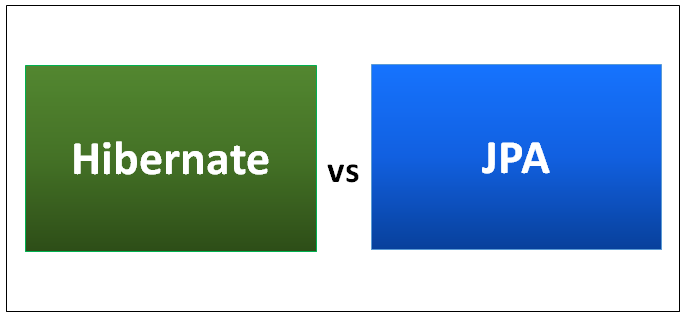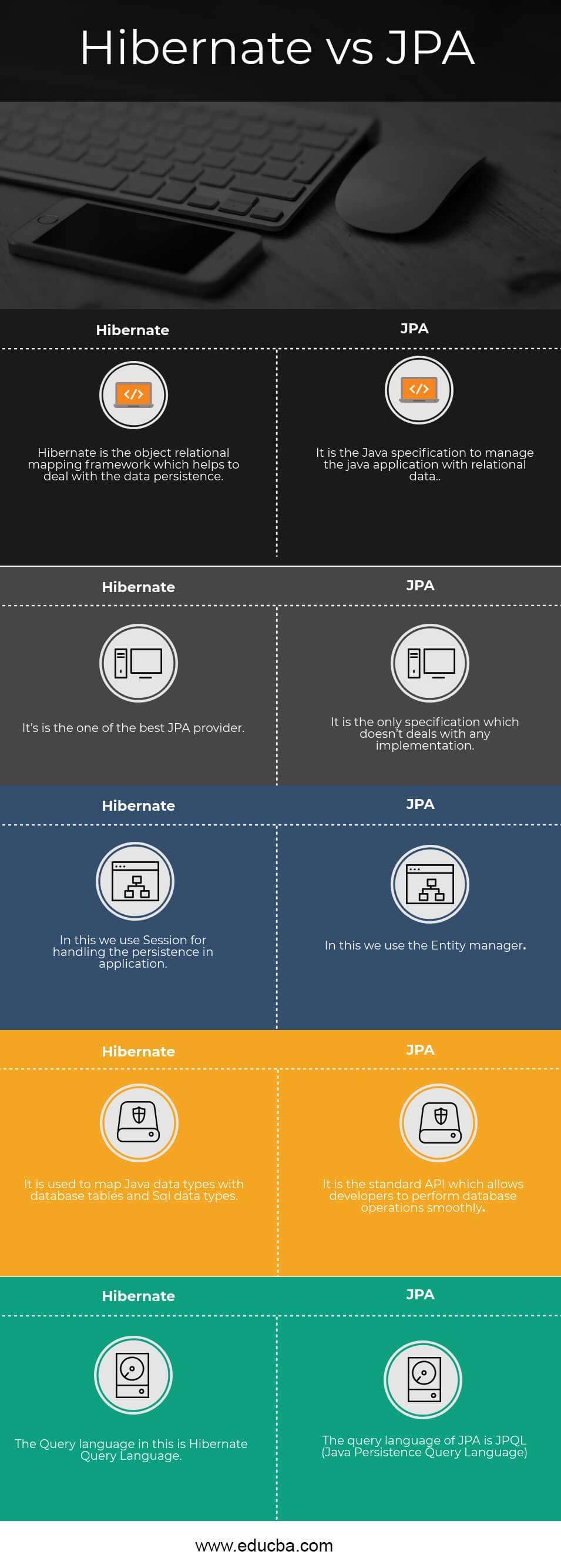Updated May 12, 2023

Difference Between Hibernate vs JPA
Hibernate is a framework that is known as the Hibernate ORM framework. Red Hat designed Hibernate, known as Hibernate ORM, a framework. Its initial release happened on 23 May 2007; it is an object-relational mapping tool for the Java language. It is written in Java, and it supports a cross-platform JVM. Its licensing is done under GNU Lesser General Public. JPA is known as Java persistence API. JPA, also called Java Persistence Application Programming Interface or Java application programming interface, is a technology for managing relational data. JPA is a specification. It deals with the object or relational metadata. The language of the JPA is JPQL (Java Persistence Query Language).
Hibernate
Hibernate’s primary features are to map the Java classes to database tables.
Some key features of Hibernate are given below:
- It’s an implementation of JPA guidelines.
- It helps to map Java classes to database tables and Java data types to SQL data types.
- Hibernate is the provider of JPA.
JPA
The initial release of JPA happened on 11 May 2006.
Some Key features of JPA are given below:
- JPA is not an implementation; it is only a specification.
- It is a set of rules and guidelines for setting interfaces for object-relational mapping.
- It requires a small number of classes and interfaces.
- It supports easier, cleaner, and standardized object-relational mapping.
- It supports polymorphism and inheritance.
- In this dynamic and named queries can be added.
In one line, if we want to define Hibernate and JPA, we can say that Hibernate is implementing all the JPA guidelines.
Head-to-Head Comparison Between Hibernate vs JPA (Infographics)
Below are the top 5 differences between Hibernate vs JPA:
Key Differences Between Hibernate vs JPA
Both are popular choices in the market; let us discuss some of the major differences:
- JPA is a set of a specification for which implementation is provided in Hibernate.
- JPA is standard, while Hibernate is not.
- In hibernate, we use Session for handling data persistence, while in JPA, we use Entity Manager.
- The query language in Hibernate is Hibernate Query language, while in JPA, the query language is Java Persistence query language.
- Hibernate is one of the most JPA providers.
Hibernate vs JPA Comparison Table
Below is the topmost Comparison between Hibernate vs JPA :
|
Hibernate |
JPA |
| Hibernate is the object-relational mapping framework that helps to deal with data persistence. | It is the Java specification to manage the Java application with relational data. |
| It is one of the best JPA providers. | It is the only specification that doesn’t deal with any implementation. |
| In this, we use Session for handling the persistence in an application. | In this, we use the Entity Manager. |
| It maps Java data types with database tables and SQL data types. | It is the standard API that allows developers to perform database operations smoothly. |
| The Query language in this is Hibernate Query Language. | The query language of JPA is JPQL (Java Persistence Query Language). |
Conclusion
This is all about the Hibernate vs JPA. These all are practical topics in theory; not much data is available. The major difference is that the framework hibernates while JPA provides API specifications.
Recommended Articles
This has been a guide to the top differences between Hibernate vs JPA. Here we discuss Hibernate vs JPA key differences with infographics and a comparison table. You may also have a look at the following articles to learn more-

